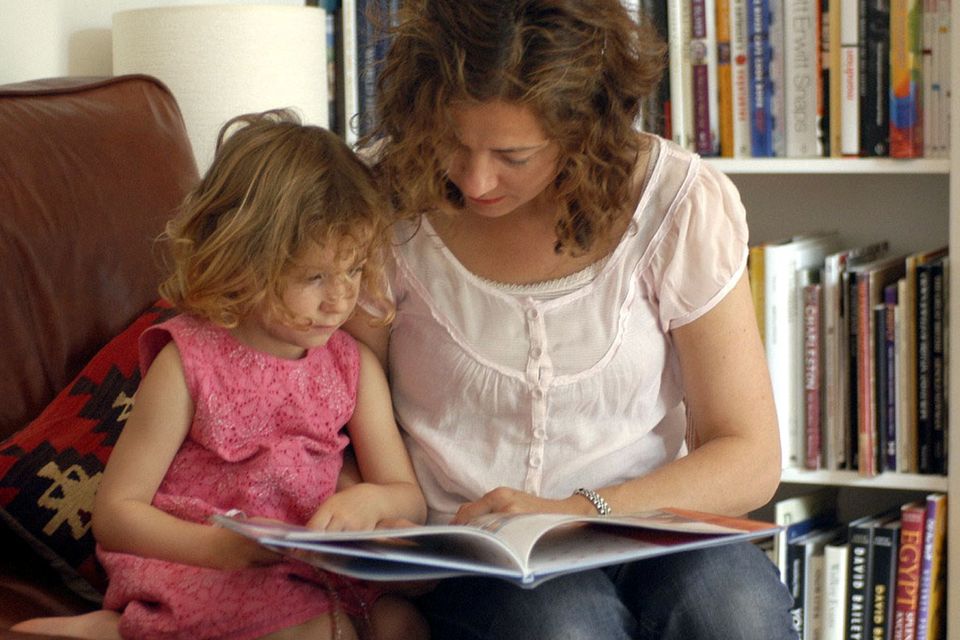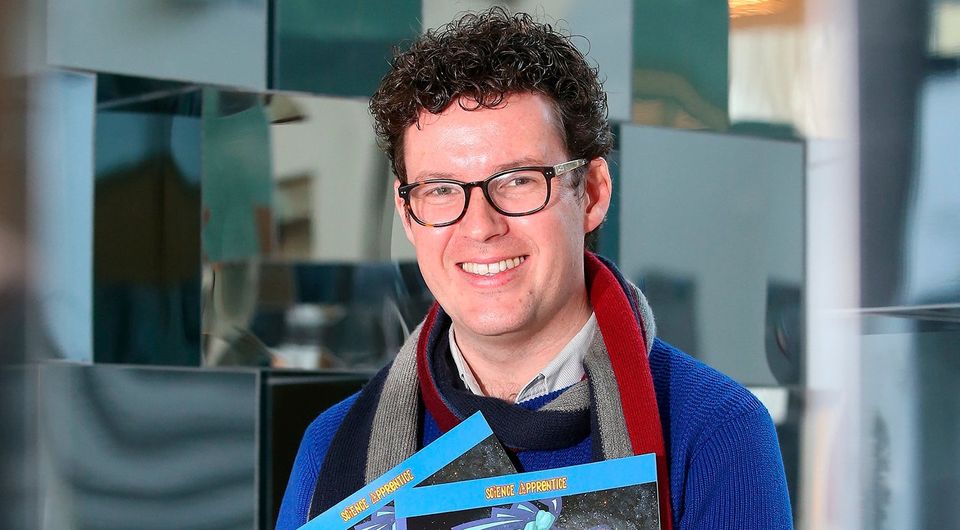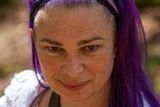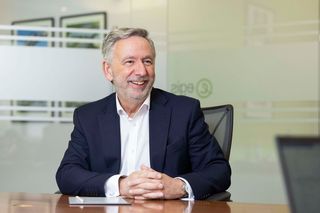Reading to children 'more effective than technology at boosting science skills'
Reading books to children has a far more profound effect on learning than letting them play with electronic tablets. Stock Image: GETTY
Parents must put down the electronic tablets and start reading to their children if they want them to be successful in the world of tech and science.
Reading books to children has a far more profound effect on learning than letting them play with electronic tablets, according to Dr Shane Bergin, physicist, lecturer and researcher in science education at University College Dublin (UCD).
Dr Shane Bergin. Photo: Frank McGrath
He said many parents made the mistake of assuming that just because a child had a tablet, they were learning about tech, or even playing with educational apps. And children are growing up in an environment where older family members are regularly glued to technology.
But parents had a crucial role to play in developing our young people's learning skills, much of which involved interaction and stories, said Dr Bergin.
"Young children copy what they see us doing - and in many cases, that is sitting in a room looking at a tablet or phone, even when there are other things happening in the same space," said Dr Bergin.
"It is normal that children will want to do the same thing as us. However, we are fostering a different learning experience, and one that is not as effective as the valuable information exchange that comes with reading.
"Reading is a fantastic way for children to learn, because they lose themselves into their own imagination for a while.
"But reading as a learning tool is made more profound when a parent, guardian, grandparent or sibling is there to have conversations and answer questions.
"These conversations bring people closer together, and they are fundamentally what changes hearts and minds - for example, museums are a lot more fun when you see them with other people.
"Some of our most positive memories are based around people telling us stories. They connect with us and, in many cases, we project ourselves into the stories.
"When things are painted with words, we make our own pictures with them. From a learning point of view, that is crucial. You construct your own views based on this exchange and then you test your theories in interaction with the world."
Dr Bergin was speaking at the launch of the Science Apprentice - a series of five vibrant books in association with UCD and Science Foundation Ireland, designed to stimulate children's interest in science.
"We need a scientifically literate population: a nation that talks about science and contributes to the conversation, connecting the professor to the factory manager, the teacher, the politician and the parent.
"The route to this is education, and that needs to be broader than the schools," he said.
He said that giving a child a tablet required "a lot more care than you would with a book".
"When you give a child a book, you can be sure of the content. Information is curated in books - someone has already done the work and designed a flow to spark conversation between mam and dad and a little one.
"This information exchange is a lot slower than quickly swiping between pages on a tablet - and consequently, learning takes place at the correct pace."
Dr Bergin is also developing modern teaching practices for third-level science.
The Science Apprentice
The Science Apprentice books are free to collect with the Irish Independent in Tesco stores every Saturday until November 26.
Readers are brought on an interactive journey - from Space to Food and Health, Energy and Resources, Computers and Data and Connected Future.
These books are vitally important for primary schoolchildren, bringing them a world of knowledge and opening their minds to potential careers in science, technology, engineering and mathematics.
The Science Apprentice book series has been produced by University College Dublin and partners, supported by the Science Foundation Ireland Discover Programme and the Programme for Research in Third Level Institutions.
Join the Irish Independent WhatsApp channel
Stay up to date with all the latest news
















